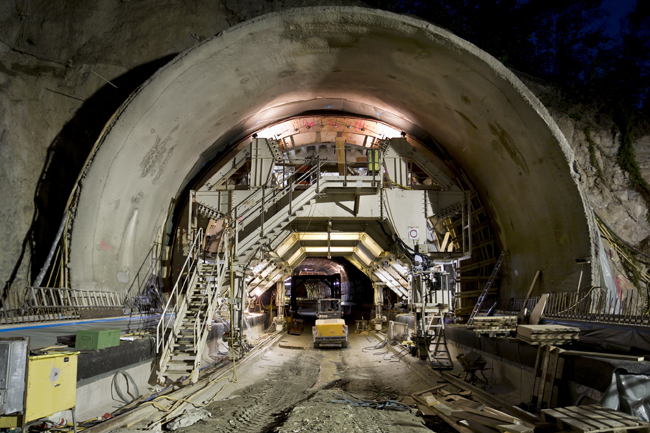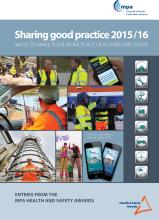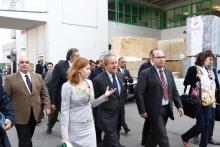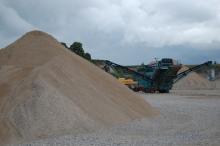
The building materials company says the deployment of the mobile on-site concrete plants and its local network of 21 plants in Île-de-France has enabled it to provide timely delivery and backup, ensuring the delivery of optimal quantities of concrete within tight time frames.
The company adds that delivering a high strength of concrete was essential as the future metro station for the Grand Paris Express is a state-of-the-art structure that must have a guaranteed service life of more than 100 years.
CEMEX's formula and quality control staff provided a highly technical concrete designed to meet the demanding project specifications.
The Grand Paris Express worksites on metro lines 11, 14, and several sections of line 15 South have involved most of CEMEX staff in the Île-de-France region, with four full-time operatives working in a dedicated unit. Given the scale of operations, CEMEX says logistical organisation is a major challenge, with the twin demands of delivering construction materials and removing 40 million tonnes of earthwork by 2030.
"The Grand Paris worksites present a daily challenge to deliver ready-mix concrete on time, supply aggregates to our production sites, and move earthworks from the stations and tunnels out of Paris,” said Benjamin Lecendrier, major projects director at CEMEX France.
Satellite surveillance has been deployed over the 200km metro line during all stages of the Grand Paris Express project: baseline before work used data and satellite images of the area where construction work was taking place that dated back to 1992, with monthly updates during the work and post-construction monitoring. CLS (a subsidiary company of French Space Agency CNES) and its subsidiary TRE-ALTAMIRA provided inSAR surveillance at all stages of the tunnelling project.
More info: %$Linker:







